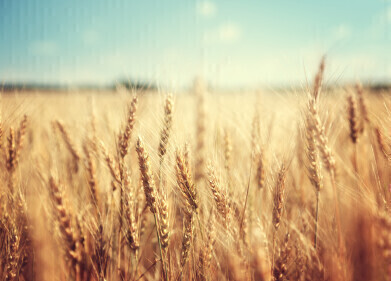LC-MS
Using Treated Wastewater to Irrigate Crops Could Harm Human Health, Says Study
May 20 2016
A new study from Israel has found that fruit and vegetables grown using treated wastewater could increase human exposure to pharmaceutical drugs. The study — which took place at the Hadassah-Hebrew University in Jerusalem and was published in the journal Environmental Science & Technology — is the first of its kind to address the possibility of exposure to drugs through reclaimed wastewater use.
The data revealed elevated levels of carbamazepine, a drug frequently used to treat epilepsy, in the urine samples of its test subjects.
The first of its kind
The study involved 34 volunteers split into two groups. Both groups were given tomatoes, cucumbers, lettuce, peppers and other fresh produce and drank bottled water to remove drinking water from the equation. One group were given produce that had been irrigated using treated wastewater for the first week and produce that had been irrigated using freshwater the following week. The second group were given the produce in the reverse order.
Before and during the study, each volunteer’s urine was analysed using liquid chromatography combined with mass-spectrometry (LC-MS). While the base levels of carbamazepine varied from person to person at the outset of the experiment, those who ate the freshwater irrigated produce showed no discernible increases in their levels of the drug.
On the other hand, the volunteers who had consumed the fruit and veg irrigated with treated wastewater showed a quantifiable increase in carbamazepine levels, demonstrating that eating such food can increase exposure to this drug and others.
No cause for concern?
Ora Paltiel, co-author of the study and professor of epidemiology and hematology at the University, was quick to downplay fears, pointing out that the levels found in the urine samples were still relatively low.
In a press release she stated:
"In a randomized controlled trial we have demonstrated that healthy individuals consuming reclaimed wastewater-irrigated produce excreted carbamazepine and its metabolites in their urine, while subjects consuming fresh water-irrigated produce excreted undetectable or significantly lower levels of carbamazepine."
Nevertheless, the implication is that over time, continued consumption of affected produce could build up in the human body and potentially cause problems further down the line. Paltiel said
"It is evident that those who consume produce grown in soil irrigated with treated wastewater increase their exposure to the drug. Though the levels detected were much lower than in patients who consume the drug, it is important to assess the exposure in commercially available produce."
With water shortages an increasing problem – especially in dry countries like Israel, where around 60% of all agricultural produce is grown using reclaimed wastewater – such studies highlight challenging problems that scientists and authorities have to overcome.
Using chromatography is one of the main techniques when analysing food related samples as discussed in the article, Managing PAHs and Pesticides with a Rapid UHPLC-MS/MS Analysis.
So, no peeing on the rhubarb while you’re on those antibiotics.
Events
Apr 22 2025 Kintex, South Korea
Analytica Anacon India & IndiaLabExpo
Apr 23 2025 Mumbai, India
Apr 27 2025 Portland, OR, USA
May 11 2025 Vienna, Austria
May 18 2025 Tempe. AZ, USA












